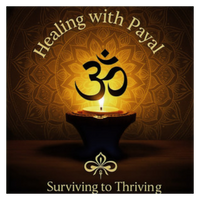Spotting the Red Flags: Understanding and Recognizing the Signs of Depression
- HealingWithPayal

- Jun 9
- 4 min read
Updated: Jul 10

In today’s fast-paced world, mental health issues have become increasingly common, with millions of people dealing with a myriad of conditions such as depression, anxiety, bipolar disorder, and borderline personality disorder. Despite its prevalence, depression often goes unnoticed, masked by daily routines or dismissed as mere sadness. This blog will help you recognize the signs of depression, empower you to seek help, and encourage understanding for those suffering from these mental health conditions.
Understanding Depression: What Is It?
Depression is more than just a temporary bout of the blues. It is a serious mental health condition characterized by persistent feelings of sadness, hopelessness, and a lack of interest in activities once enjoyed. The World Health Organization recognizes depression as one of the leading causes of disability worldwide, affecting individuals across all demographics and backgrounds.
Common Signs of Depression
Identifying the signs of depression can be crucial for timely intervention. Below are several key indicators to watch for:
Persistent Sadness: Feeling sad, anxious, or "empty" most of the time.
Loss of Interest: Not finding joy in activities that once brought happiness.
Changes in Sleep Patterns: Sleeping too much or struggling with insomnia.
Altered Appetite: Significant weight loss or gain; changes in appetite.
Fatigue: Persistent tiredness and low energy affecting daily activities.
Difficulty Concentrating: Challenges in making decisions or focusing on tasks.
Feelings of Worthlessness: Intense feelings of guilt or inadequacy.
Thoughts of Death or Suicide: In extreme cases, individuals may contemplate self-harm.
Why Understanding the Signs is Critical
Early recognition of depression not only assists individuals in seeking help but also fosters an environment of understanding and support among friends and family. Mental health conditions like bipolar disorder and borderline personality disorder can have overlapping symptoms with depression. Hence, understanding these nuances can lead to more effective coping strategies and treatments.
Link Between Depression and Other Mental Health Conditions
It’s essential to understand that depression doesn’t exist in a vacuum. Many individuals who experience symptoms of depression may also contend with other mental health issues such as anxiety, bipolar, or borderline personality disorder. Recognizing these connections can significantly impact the treatment approach. For instance:
Depression and Anxiety
Research indicates that individuals suffering from anxiety disorders are at increased risk for developing depression. Symptoms of anxiousness, worry, and fear can trigger feelings of helplessness and despair, creating a cycle that can be difficult to break.
Depression and Bipolar Disorder
Individuals with bipolar disorder experience extreme mood swings, including depressive episodes. Recognizing symptoms early in these cases can help differentiate between depression and bipolar disorder, allowing for tailored treatment plans that consider both mood stabilization and the depressive phase.
Depression and Borderline Personality Disorder
Borderline personality disorder (BPD) is characterized by intense emotions and difficulties in interpersonal relationships. Individuals with BPD often show signs of depression, making it critical to provide holistic treatment options that consider both mental health concerns.
How to Help Yourself or a Loved One
If you or someone you know is exhibiting signs of depression, it’s essential to take proactive steps. Here are several strategies to consider:
Seek Professional Help: Consulting with a mental health professional is crucial for a proper diagnosis and treatment plan.
Establish a Support System: Surround yourself with supportive friends or family members who can provide emotional support.
Engage in Physical Activity: Exercise has been shown to improve mood and alleviate symptoms of depression.
Prioritize Sleep: Quality sleep is vital for emotional well-being. Establishing a sleep routine can help.
Practice Mindfulness: Techniques like meditation or yoga can help ground thoughts and alleviate symptoms of anxiety and depression.
Avoid Substance Abuse: As tempting as it may be to self-medicate, drugs and alcohol can exacerbate mental health issues.
Break the Stigma: Open Up the Conversation
Talking about mental health struggles can feel daunting. However, reducing stigma around depression and associated disorders is vital. Sharing experiences within a social circle or community can help normalize conversations about mental health, encouraging others to seek help without fear of judgment.
On the Path to Healing: Taking Action
Recognizing the symptoms of depression is the first step towards healing. It’s crucial to remember that you are not alone and that there is no shame in seeking help. Whether it is through therapy, medication, or positive lifestyle changes, taking action can lead to significant improvements in quality of life.
Embrace the Journey: Find Your Light
Finding peace and joy in life again after struggling with depression, anxiety, bipolar, or borderline personality disorder is absolutely possible. Each small step you take towards understanding, accepting, and addressing these challenges can ultimately illuminate your path to recovery. Remember: it’s just one day at a time on this journey of self-discovery and healing.
So, whether you're on the lookout for signs in yourself or trying to understand a loved one’s experience, keep nurturing an open mindset. With awareness and a willingness to act, you can make strides toward mental well-being. After all, it’s a journey worth taking.
FAQs
What is depression?
Depression is a serious mental health condition characterized by persistent feelings of sadness, hopelessness, and a lack of interest in activities once enjoyed.
What are common signs of depression?
Common signs of depression include persistent sadness, loss of interest in activities, changes in sleep patterns, altered appetite, fatigue, difficulty concentrating, feelings of worthlessness, and thoughts of death or suicide.
Why is recognizing the signs of depression important?
Early recognition of depression helps individuals seek help and fosters an environment of understanding and support among friends and family.
How can one help themselves or a loved one experiencing depression?
Strategies include seeking professional help, establishing a support system, engaging in physical activity, prioritizing sleep, practicing mindfulness, and avoiding substance abuse.
How can one reduce stigma around mental health issues?
Reducing stigma involves talking openly about mental health struggles to normalize conversations and encourage others to seek help without fear of judgment.




Comments